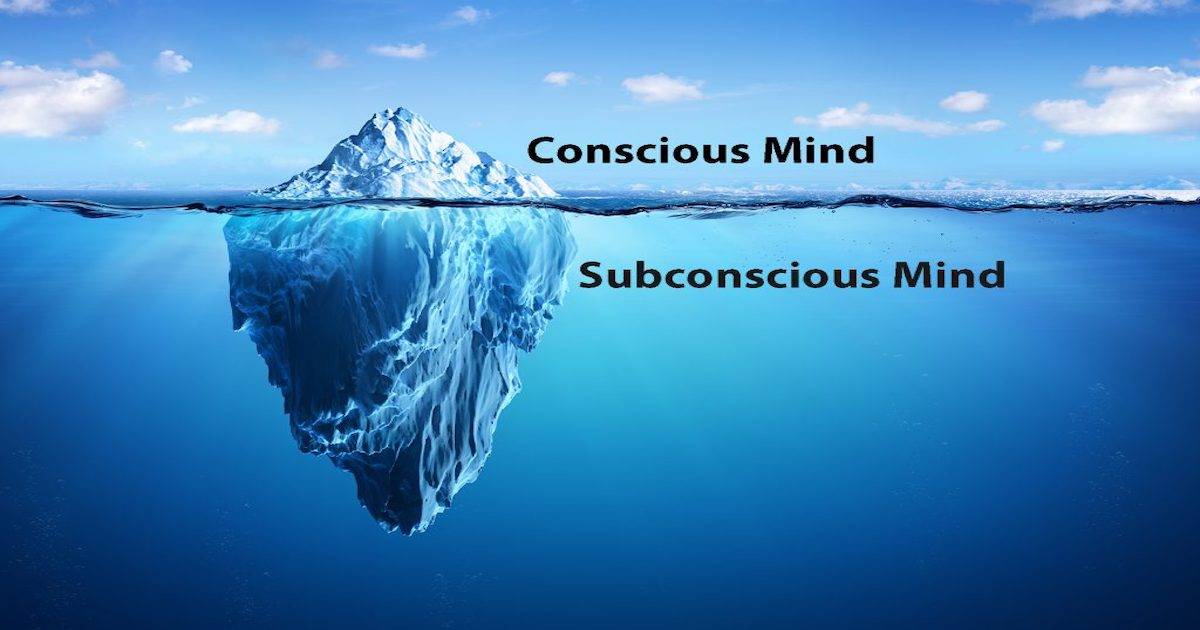The unconscious mind is a concept that has fascinated humans for centuries. It refers to the part of our psyche that we are not aware of, but which nevertheless influences our thoughts, emotions, and behaviors.
According to psychoanalytic theory, the unconscious mind is a reservoir of repressed memories, desires, and instincts that shape who we are.
The term “unconscious” was first coined by philosopher Friedrich Nietzsche in the late 19th century. However, it was Sigmund Freud who popularized the concept through his work on psychoanalysis.
Freud believed that human behavior is motivated by unconscious forces such as sexual and aggressive impulses. He also proposed that psychological disorders were caused by unresolved conflicts between conscious and unconscious thoughts.
The Importance of Understanding the Unconscious Mind
Understanding the unconscious mind is crucial for several reasons. First, it helps us gain insight into our own behavior and motives. By exploring our dreams, fantasies, and other unconscious material through therapy or self-reflection, we can become more aware of hidden aspects of ourselves.
Secondly, knowledge about the unconscious mind can help improve interpersonal relationships. By recognizing how our own unconscious patterns affect our interactions with others, we can develop greater empathy and understanding towards those around us.
Thirdly, understanding the influence of the unconscious mind can benefit society as a whole. For example, in fields such as marketing and advertising where subconscious cues are often used to sway consumer behavior.
An understanding of the unconscious mind can help us better comprehend human nature in general – why people do what they do and what makes them tick. Ultimately this knowledge could lead to new insights into how people operate which might improve medicine or psychology fields.
Despite being mysterious in nature, studying the workings of the human psyche has been a life-long pursuit of many. The unconscious mind is a complex and intriguing aspect of the human experience, and developing an understanding of it can lead to a more reflective and fulfilling life.
Theories on the Unconscious Mind
The concept of the unconscious mind has been studied extensively, and there are various theories that explain its functions and processes. Two prominent figures in the field of psychology who have contributed significantly to our understanding of the unconscious mind are Sigmund Freud and Carl Jung.
Freud’s Psychoanalytic Theory
Sigmund Freud’s psychoanalytic theory is perhaps one of the most well-known theories regarding the unconscious mind. According to Freud, the human psyche is divided into three parts: the id, ego, and superego. The id represents our most primitive impulses and desires, while the superego represents our conscience or moral compass.
The ego mediates between these two forces. Another important aspect of Freud’s theory is defense mechanisms.
Defense mechanisms are psychological strategies that we use unconsciously to protect ourselves from anxiety or emotional pain. Examples include repression (pushing unwanted thoughts or memories into the unconscious), projection (attributing one’s own undesirable characteristics onto others), and denial (refusing to acknowledge unpleasant realities).
Dreams also play a crucial role in Freud’s theory of the unconscious mind. According to him, dreams serve as a window into our deepest desires and fears.
Dreams often contain symbolic representations of repressed wishes or traumatic experiences that we are unable to confront directly in waking life. By analyzing a patient’s dreams, Freud believed he could uncover repressed material from their unconscious mind.
Jung’s Analytical Psychology
Carl Jung developed his own theory on the unconscious mind called analytical psychology. One of Jung’s most significant contributions was his concept of collective unconsciousness – an inherited pool of knowledge shared by all people across cultures.
In addition to collective consciousness, Jung also introduced archetypes – universal symbols that represent different aspects of the human experience. Examples include the hero, the mother, and the trickster.
These archetypes are deeply ingrained in our collective unconsciousness and influence our behavior and emotions. Jung also believed in a process called individuation – a journey towards self-realization and wholeness.
Individuation involves exploring and integrating different parts of oneself, including those that may be hidden in the unconscious mind. By doing so, individuals can develop a greater sense of purpose and meaning in their lives.
Overall, Freud’s psychoanalytic theory focuses on how repressed desires affect an individual’s mental health, while Jung’s analytical psychology focuses on understanding the symbols that shape our experiences as humans. Both theories provide valuable insights into how the unconscious mind works.
The Role of the Unconscious Mind in Everyday Life
Habits and Behaviors: The Power of the Unconscious
Habits and behaviors are often deeply ingrained in our unconscious mind. We don’t think about them, we just do them. These automatic actions are controlled by the basal ganglia, a part of the brain that is responsible for the formation and execution of habits.
Once a habit is formed, it becomes difficult to break because it is stored deep in our unconscious mind. For example, if you have developed the habit of biting your nails, it is likely that you do this subconsciously whenever you feel anxious or stressed.
You may not even be aware that you are doing it until someone points it out to you. The same goes for other habitual behaviors like smoking or checking your phone.
Understanding how habits work can help us to change unwanted behavior patterns by reprogramming our unconscious mind. By making small changes to our daily routines and consciously forming new habits over time, we can override old patterns and create new ones.
Emotions and Feelings: A Window into Our Unconscious
Our emotions and feelings are also closely linked to our unconscious mind. Sometimes we may feel overwhelmed by powerful emotions such as anger or sadness without really understanding why we feel this way. These emotions can be traced back to early experiences or traumas that have been buried deep in our unconscious mind.
For example, if as a child you were constantly criticized by a parent or teacher, this may lead to feelings of inadequacy or low self-esteem that continue into adulthood.
By becoming more aware of our emotions and working on emotional regulation techniques such as mindfulness meditation or therapy, we can gain insight into the underlying causes of these feelings and work on resolving them at their source.
Decision Making: The Hidden Influences of Our Unconscious
Our unconscious mind also plays a major role in decision making. Research has shown that often we make decisions based on factors we are not consciously aware of, such as biases, heuristics, or cultural conditioning.
For example, studies have found that job candidates with more traditionally white-sounding names are more likely to be invited for an interview than those with ethnic-sounding names, even when their resumes are identical.
This is an example of unconscious bias at play. By becoming aware of these hidden influences on our decision making and consciously working to overcome them, we can make more rational and fair choices that align with our values and goals.
Bringing the Unconscious Mind into Conscious Awareness
Overall, the unconscious mind plays a powerful role in shaping our thoughts, behaviors and emotions. By becoming more aware of its influence and working to reprogram negative patterns or biases we can improve our quality of life and achieve greater personal growth.
Understanding the complexities of the unconscious mind is a lifelong journey but one that is well worth embarking on.
The Science Behind the Unconscious Mind
Neuroscience Research on the Brain and Unconscious Processing
Neuroscience has made significant strides in recent years to uncover how the brain processes information outside of our conscious awareness. The use of functional magnetic resonance imaging (fMRI) has allowed researchers to look into the brain and observe activity that occurs unconsciously.
A study conducted by scientists at UCLA found that unconscious stimuli, such as subliminal images, can activate specific regions of the brain even when we are not aware of them. Another area of research focuses on split-brain patients, individuals whose corpus callosum – a bundle of fibers connecting the two hemispheres – is severed.
Studies have found that these patients can respond to stimuli presented to their non-dominant hemisphere, which they cannot consciously report. This suggests that unconscious processes in one hemisphere can influence behavior without conscious awareness.
These findings provide evidence for the idea that much of our cognitive processing occurs unconsciously and influences our behavior without us realizing it. As we continue to learn more about how the brain functions, we may better understand how unconscious thought affects everyday life.
Cognitive Psychology Research on Implicit Memory
Implicit memory refers to a type of memory processing where information is acquired and stored without conscious awareness. This type of memory is responsible for habits like riding a bike or typing on a keyboard; you do not have to consciously think about each step or movement because your implicit memory takes over.
Cognitive psychology studies have shown that implicit memory operates differently than explicit memory – memories that we actively try to recall.
For example, one study found that individuals who had amnesia and could not recall explicit memories were still able to learn new skills through implicit memory. Research also suggests that different types of implicit memories exist, including perceptual and conceptual priming.
Perceptual priming involves recognizing visual or auditory stimuli that we have encountered before, while conceptual priming involves the activation of semantic memory. Understanding implicit memory is important because it can help explain how we learn and form habits, and how our past experiences influence our behavior.
Additionally, this research could have implications for treating conditions like amnesia or post-traumatic stress disorder. The science behind the unconscious mind is a fascinating and rapidly evolving field.
Current research in neuroscience and cognitive psychology has shed light on the processes that occur unconsciously in our brains and how these processes affect our behavior. By continuing to advance our understanding of the unconscious mind, we may be able to better treat psychological disorders and improve overall well-being.
Practical Applications of Understanding the Unconscious Mind
Therapy and Self-Improvement
Therapy and self-improvement are two areas where an understanding of the unconscious mind can be very helpful. Hypnosis, mindfulness meditation, and cognitive behavioral therapy (CBT) are three modalities that often focus on the unconscious mind.
In hypnosis, a therapist helps a patient enter into a trance-like state where they are more suggestible to positive changes in behavior or thought patterns.
Mindfulness meditation involves paying attention to one’s thoughts and feelings without judgment, which can help identify underlying issues that may be affecting mental health. CBT is another technique that focuses on changing negative thought patterns by identifying them as they arise in the present.
Hypnosis
Hypnosis is a technique used in therapy to help individuals overcome certain behaviors or thought patterns that may be negatively impacting their life. The hypnotist guides the individual into a relaxed state where they become more receptive to positive suggestions for change.
Hypnotic suggestions can be used for weight loss, smoking cessation, anxiety reduction, and many other issues. Research has shown that hypnosis can be an effective tool in promoting positive changes in behavior.
Mindfulness Meditation
Mindfulness meditation is a practice designed to increase awareness of one’s thoughts and feelings without judgment. The goal of this practice is to allow individuals to become more present in their lives while reducing stress and anxiety levels. By focusing on breathing or body sensations during meditation, individuals can learn to recognize negative thought patterns and emotions as they arise before they become overwhelming.
Cognitive Behavioral Therapy (CBT)
Cognitive-behavioral therapy (CBT) is a form of therapy that focuses on changing negative thought patterns by identifying them as they arise in the present moment. This therapy aims to teach individuals how to recognize and challenge negative thoughts, which can lead to more positive emotions and behaviors. By understanding the underlying thought patterns that contribute to negative behaviors, individuals can learn to replace them with more positive ones.
Marketing and Advertising
Marketing and advertising are two areas where an understanding of the unconscious mind can be useful. Subliminal messaging and branding strategies are two techniques often used in marketing that rely on an individual’s unconscious mind.
Subliminal messaging involves presenting stimuli below the threshold of conscious awareness, which can influence a person’s behavior or beliefs without their knowledge. Branding strategies use symbols, colors, or other sensory cues to create emotional connections between consumers and products.
Subliminal Messaging
Subliminal messaging is a marketing technique that involves presenting stimuli below the threshold of conscious awareness. These stimuli may be visual or auditory cues that affect a person’s behavior or beliefs without their knowledge. Advertisers use subliminal messages as a way to influence consumer behavior in subtle ways.
Branding Strategies
Branding strategies involve using symbols, colors, or other sensory cues to create emotional connections between consumers and products. Companies use branding strategies as a way to create positive associations with their products in the minds of consumers. By understanding how the unconscious mind works, companies can develop branding strategies that resonate with their target audience.
The “critical faculty” or “critical factor”
The critical faculty assesses information coming in from the outside world and decides what gets through to the unconscious mind.
In order to communicate effectively with the unconscious mind and for suggestions and affirmations to work with the most potency, it is often recommended to bypass the critical faculty. There are several ways to do this:
- Hypnosis: Hypnosis is one of the most common ways to bypass the critical faculty. In a state of hypnosis, the critical faculty is relaxed and the unconscious mind is more open and receptive to suggestions.
- Repetition: Repetition is another way to bypass the critical faculty. The constant repetition of a message can eventually get it through to the unconscious mind.
- Emotionally Charged Events: Events or experiences that evoke strong emotions can also bypass the critical faculty. When we’re in a highly emotional state, our critical faculty may be less active, allowing messages to reach the unconscious mind more directly.
- Belief and Expectation: If a person deeply believes in or expects something, that can also bypass the critical faculty. This is why the placebo effect can be so powerful.
- Meditation: Meditation can help quiet the conscious mind, which can in turn relax the critical faculty and make the unconscious mind more accessible.
- NLP Techniques: There are specific techniques in Neuro-Linguistic Programming designed to bypass the critical faculty, such as the use of metaphor, storytelling, and linguistic patterns.
- Visualization and Imagery: Visualization and guided imagery can help bypass the critical faculty by engaging the imagination and the senses.
Please note that these methods should be used responsibly and ethically, respecting the autonomy and well-being of individuals. These are general strategies and their effectiveness can vary from person to person.
Conclusion
The unconscious mind plays a significant role in our lives, influencing our thoughts, feelings, and behaviors without our knowledge.
By understanding how the unconscious mind works through various techniques like hypnosis, mindfulness meditation, or CBT therapy one can improve one’s life by changing negative thought patterns into positive ones leading you toward success both professionally and personally In addition knowing about marketing techniques like subliminal messaging & branding strategy you will also have an edge over others while making purchases.
Understanding the unconscious mind can be a powerful tool in promoting positive changes in behavior, improving mental health, and even influencing consumer behavior.
Quotes on the power of the mind and subconscious
- “The mind is everything. What you think you become.” – Buddha
- “The unconscious mind of man sees correctly even when conscious reason is blind and impotent.” – Carl Jung
- “The best way to predict your future is to create it.” – Peter Drucker
- “Whatever we plant in our subconscious mind and nourish with repetition and emotion will one day become a reality.” – Earl Nightingale
- “Your unconscious mind is more powerful than your conscious mind. Most of life’s actions are within the jurisdiction of your unconscious mind.” – Maddy Malhotra
- “The power of your subconscious mind is greater than your conscious mind. We are what we believe.” – Buddha
- “The unconscious mind is decidedly simple, unaffected, straightforward and honest. It hasn’t got all of this facade, this veneer of what we call adult culture. It’s rather simple, rather childish It is direct and free.” – Milton H. Erickson
- “The unconscious mind can be your best friend or your worst enemy.” – Steven Magee
- “The unconscious mind is the source of our energy, and no amount of conscious reasoning can override it.” – David Patchell-Evans
- “The unconscious mind is decidedly simple, unaffected, straightforward and honest. It hasn’t got all of this facade, this veneer of what we call adult culture. It’s rather simple, rather childish It is direct and free.” – Milton H. Erickson
- “The unconscious mind records all 1001 little details the conscious mind neglects.” – John Kehoe
- “The unconscious mind is the largest untapped resource in the human race.” – Brian Tracy
- “The unconscious mind is the disc in the back-room; it is the mother-board; the hard-drive of the human computer.” – Kevin Michel
- “The unconscious mind has a habit of asserting itself in the afternoon.” – Anthony Burgess
- “The unconscious mind is the disc in the back-room; it is the mother-board; the hard-drive of the human computer.” – Kevin Michel
- “The unconscious mind is the largest untapped resource in the human race.” – Brian Tracy
- “The unconscious mind has a habit of asserting itself in the afternoon.” – Anthony Burgess
- “The unconscious mind is the disc in the back-room; it is the mother-board; the hard-drive of the human computer.” – Kevin Michel
- “The unconscious mind is the largest untapped resource in the human race.” – Brian Tracy
- “The unconscious mind has a habit of asserting itself in the afternoon.” – Anthony Burgess
These quotes emphasize the power of the unconscious mind, its influence on our actions and beliefs, and its potential for creating our reality.
Affirmations can help to shape and influence our unconscious minds, working toward creating positive habits, shifting perspectives, and fostering a healthy mindset. Here are…
20 affirmations aimed at working with your unconscious mind:
- “Every day, my understanding of my inner world grows deeper.”
- “I trust my intuition, it guides me wisely and with care.”
- “My unconscious mind supports and nurtures my growth and development.”
- “I am tuned into the wisdom that my unconscious mind provides.”
- “My unconscious mind is a source of immense creativity.”
- “I am releasing past negativity and embracing my bright future.”
- “I trust the process and wisdom of my unconscious mind.”
- “My dreams are a meaningful connection to my unconscious mind.”
- “I am open to the messages my unconscious mind sends me.”
- “I understand and appreciate the power of my unconscious mind.”
- “I am in tune with my deepest desires and motivations.”
- “I accept and appreciate the lessons from my past, they enrich my growth.”
- “I am aligning my conscious decisions with my unconscious motivations.”
- “I communicate with my unconscious mind in a positive, loving manner.”
- “I am aware of the energy that flows through my mind and body.”
- “I am at peace with the workings of my unconscious mind.”
- “Every day, my unconscious mind and I work in harmonious cooperation.”
- “My unconscious mind aids in manifesting my life’s desires.”
- “I trust in the wisdom of my dreams as they guide me on my life’s path.”
- “My unconscious mind is a powerful ally in my journey toward self-improvement.”




























































